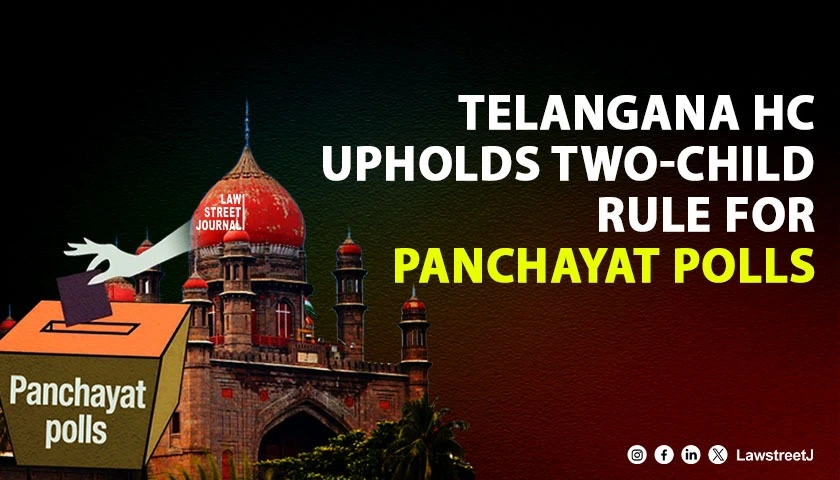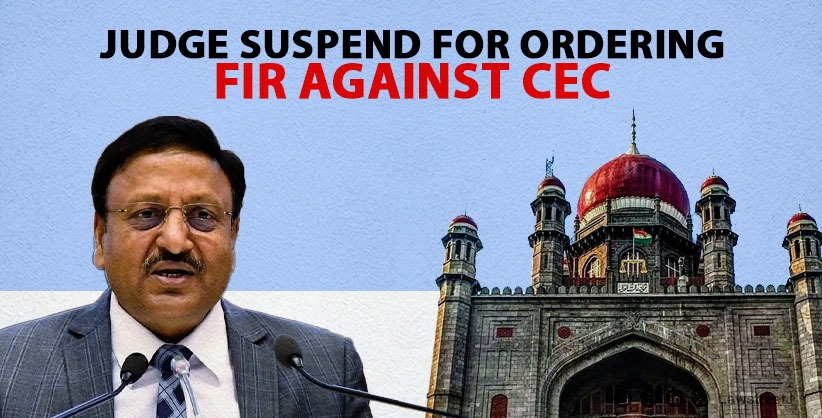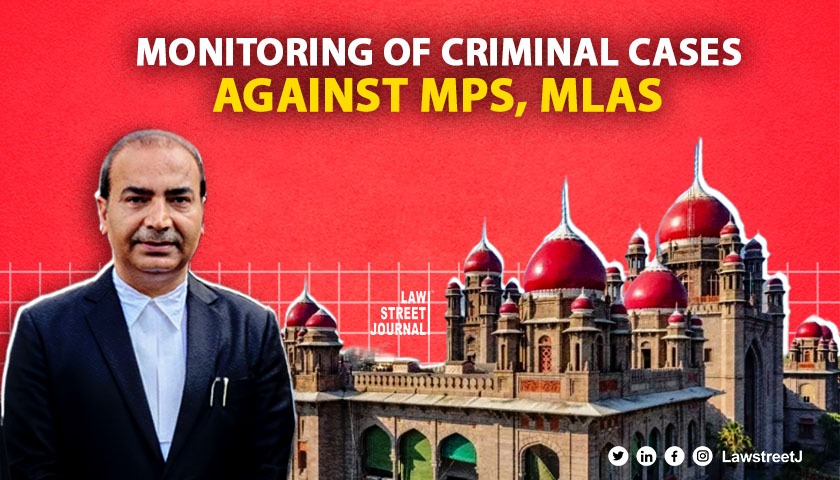Telangana: The Telangana High Court has dismissed a writ petition challenging the constitutional validity of Section 21(3) of the Telangana Panchayat Raj Act, 2018, which disqualifies persons having more than two children from contesting elections to local bodies.
The Court upheld the provision, holding that the restriction does not violate fundamental rights under Articles 14 or 19 of the Constitution.
A Division Bench of Chief Justice Aparesh Kumar Singh and Justice G.M. Mohiuddin delivered the judgment on October 30, 2025, in W.P. No. 32746 of 2025. The petitioners sought to declare Section 21(3) unconstitutional for not having received Presidential assent under Article 31C of the Constitution.
The petitioners contended that the Haryana Panchayat Raj Act, 1994, which contained a similar disqualification and had been upheld by the Supreme Court in Javed v. State of Haryana [(2003) 8 SCC 369], had received Presidential assent, while the Telangana enactment had only been assented to by the Governor. It was argued that in the absence of such assent, the provision could not claim protection under Article 31C and must therefore be struck down as violative of fundamental rights.
Rejecting the argument, the Bench observed that the impugned provision did not infringe Articles 14 or 19, and therefore, the question of invoking Article 31C did not arise. Referring to the Supreme Court’s decision in Javed, the Court reiterated that there is no fundamental right to contest an election, and a disqualification based on the number of children does not offend any constitutional guarantee.
The Bench noted, “The impugned disqualification does not violate the fundamental right to practice any profession or carry on any occupation, trade or business. The disqualification on the right to contest an election by having more than two living children does not contravene any fundamental right nor cross the limits of reasonability. Rather, it is a disqualification conceptually devised in national interest.”
Holding that the issue had already been conclusively settled by earlier judgments of coordinate Benches in W.P. Nos. 22842 and 22991 of 2024 and W.P. (PIL) (SR) No. 6578 of 2025, the Court found no merit in reopening the question. It therefore dismissed the writ petition as devoid of substance, reaffirming the validity of Section 21(3).
Case title: Uppu Veeranna v. State of Telangana





!['No common intention to kill,' SC alters conviction from murder to culpable homicide not amounting to murder [Read Judgment]](/secure/uploads/2024/02/lj_7197_f77c706e-b667-41fe-9c36-9e633e880b85.jpg)
![Remaining silent during an investigation is a fundamental right: Telangana HC [Read Judgment]](/secure/uploads/2024/04/lj_3728_c8f7ecd3-a0e9-44f7-85aa-f77b9dae3a49.webp)






